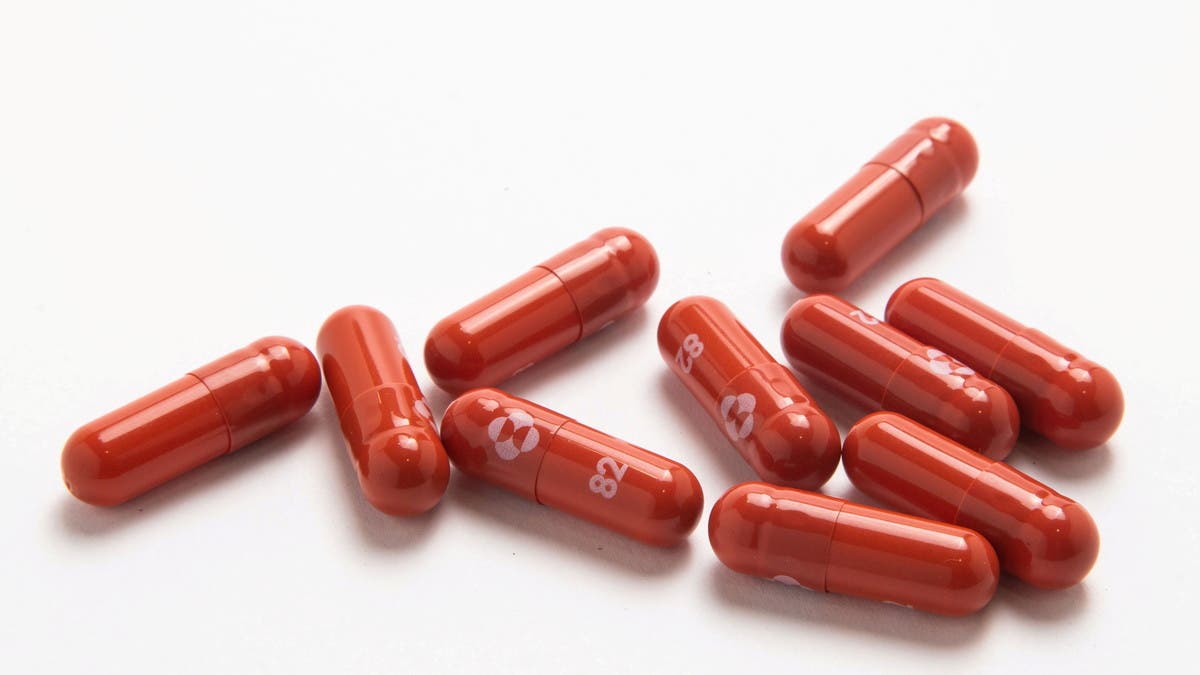A panel of US health advisers on Tuesday narrowly backed the benefits of a closely watched COVID-19 pill from Merck, setting the stage for a likely authorization of the first drug that Americans could take at home to treat the virus.
A Food and Drug Administration panel voted 13-10 that the drug’s benefits outweigh its risks, including potential birth defects if used during pregnancy.
The group’s recommendation came after hours of debate about the drug’s modest benefits and potential safety issues. Experts backing the treatment stressed that it should not be used by anyone who is pregnant and called on FDA to recommend extra precautions before the drug is prescribed, including pregnancy tests for women of child-bearing age.
For more coronavirus news, visit our dedicated page.
The vote specifically backed the drug for adults with mild-to-moderate COVID-19 who face the greatest risks, including older people and those with conditions like obesity and asthma. Most experts also said the drug shouldn't be used in vaccinated patients, who weren't part of the study and haven't been shown to benefit from the medication.
The FDA isn’t bound by the panel’s recommendation and is expected to make its own decision before year’s end.
The drug, molnupiravir, could provide a much-needed weapon against the virus as colder weather pushes case counts higher and US officials brace for the arrival of the new omicron variant. It is already authorized for emergency use.
Merck hasn’t specifically tested its drug against the new variant but said it should have some potency based on its effectiveness against other strains of coronavirus.
But that uncertainty frustrated many panelists as they grappled with whether to back the treatment for millions of Americans.
“With no data saying it works with new variants I really think we need to be careful about saying that this is the way to go,” said Dr. David Hardy of Charles Drew University School of Medicine and Science, who ultimately voted to back the drug.
The panel’s narrow-but-positive recommendation came despite new data from Merck that paint a less compelling picture of the drug’s effectiveness than just a few weeks earlier.
Last week, Merck said final study results showed molnupiravir reduced hospitalization and death by 30% among adults infected with the coronavirus, when compared with adults taking a placebo. That effect was significantly less than the 50 percent reduction it first announced based on incomplete results.
That smaller-than-expected benefit amplified experts' concerns about the drug's toxicity for human fetuses.
FDA scientists told the panelists earlier Tuesday that company studies in rats showed the drug caused toxicity and birth defects when given at very high doses. Taken together, FDA staffers concluded the data “suggest that molnupiravir may cause fetal harm when administered to pregnant individuals.”
FDA is weighing a blanket restriction against any use in pregnant women or allowing it in rare cases. Some panelists said the option should be left open for pregnant mothers who have high-risk COVID-19 and may have few other treatment options.
Dr. Janet Cragan, who backed the drug, said that even with tight restrictions some pregnant women would inevitably take the drug.
“I don’t think you can ethically tell a woman with COVID-19 that she can’t have the drug if she’s decided that’s what she needs,” a panel member and staffer with the Centers for Disease Control and Prevention. “I think the final decision has to come down to the individual woman and her provider.”
Merck's drug uses a novel approach to fight COVID-19: It inserts tiny errors into the coronavirus’ genetic code to stop it from reproducing. That genetic effect has raised concerns that the drug could spur more virulent strains of the virus. But FDA regulators said Tuesday that risk is theoretical and seems unlikely.
While Merck and its partner Ridgeback Biotherapeutics were the first to submit their COVID-19 pill to the FDA, rival drugmaker Pfizer is close behind with its own pill under review.
Pfizer’s drug is part of a decades-old family of antiviral pills known as protease inhibitors, a standard treatment for HIV and hepatitis C. They work differently than Merck’s pill and haven’t been linked to the kind of mutation concerns raised with Merck’s drug.
Pfizer said this week that its drug shouldn’t be affected by the omicron variant’s mutations.
The US government has agreed to purchase 10 million treatment courses of Pfizer’s drug, if it’s authorized. That’s more than three times the government’s purchase agreement with Merck for 3.1 million courses of molnupiravir.
Both drugs require patients to take multiple pills, twice a day for five days.
For the latest headlines, follow our Google News channel online or via the app.
Read more:
Explainer: How does Merck’s COVID-19 pill compare to Pfizer’s?
UK authorizes Merck coronavirus antiviral pill, first shown to treat COVID
Pfizer says its antiviral pill cuts risk of severe COVID-19 by 89 percent

 World3 years ago
World3 years ago
 World2 years ago
World2 years ago
 Entertainment7 years ago
Entertainment7 years ago
 World7 years ago
World7 years ago
 Entertainment7 years ago
Entertainment7 years ago






